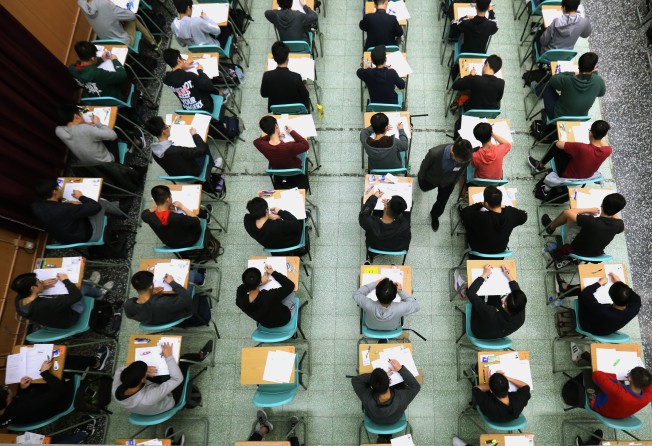Hong Kong children deserve better than a vicious rat race in school
- Most young students struggle to meet high parental and societal expectations, but the odds of earning well when they start their careers are not good

I am writing in response to Alice Wu’s column, “Nagging officials have failed city’s young people” (May 20). I am sure everyone in Hong Kong is familiar with the phrase “winning at the starting line”. Children are told to be hardworking so they can enhance their competitiveness and their futures. Nagged by their parents, they sacrifice their sleep, their playtime and other activities they enjoy – all in the quest for better results.
However, a study by the policy think tank New Century Forum found that fresh graduates in the city earn 9.6 per cent less than those 25 years ago. When young people are not satisfied with their starting salaries, they try to get a higher degree. But the glut of degree holders in the market is likely to drive pay even lower, leading to a vicious cycle.
Moreover, a study by an NGO of about 1,220 people aged 10-29 found 40 per cent feel guilty or fearful when taking breaks from work or study, as this is often seen as slacking off. No wonder stress levels are high among young people.
Undoubtedly, Hong Kong’s education system should be improved. We should nurture the talents of the next generation, not just push for academic results.
Shirley Lau, Tseung Kwan O
Tackle dearth of emotional intelligence among children first
In her column, Alice Wu highlighted a survey conducted by the Hong Kong Playground Association which showed that 31.6 per cent of respondents aged six to 24 suffered from mild to extremely severe stress. While government officials are focused on the competitiveness of the city’s youth, if young people cannot manage their own emotions, how will they contribute to society?
Hong Kong cannot have a bright future with our education system. There is no doubt that young people are good at absorbing knowledge from textbooks. However, this does not nurture talent. Our students are just like studying machines, trained to handle exam questions so as to get high marks, rather than being taught to handle the difficulties of life.
Reforming our education system appears to be a near-impossible task, at least in the next decade. Many people praise the teaching methods abroad, such as in Denmark and Singapore, and urge our government to emulate them.
But every country has its own particular teaching method that suits its own circumstances. Instead of trying to copy others, Hong Kong should try to improve its high-pressure education system based on its own ground realities.
Cherry Chan, Po Lam
Parents do need to let up on the pressure
I am writing in response to the article, “Will government-backed campaign to change Hong Kong parents’ obsession with school grades succeed in city where competition is rife?” (May 5).
I agree that parents’ obsession with academic grades could discourage the young from learning. An extreme focus on grades neglects the importance of the child’s independent development. Social pressure to succeed makes parents think that their children must “win at the starting line”.
Parents queue up to enrol the youngsters in elite schools, so they don’t end up as “failures”. They drag toddlers to playgroups and hobby courses; when they are older, it’s countless tutorial classes and after-school activities, not to speak of homework and revision. Their schedules are packed with tutors and courses, eating into time for leisure or sleep.
Although parental aspiration can help improve children’s academic performance, excessive parental aspiration can be poisonous. It may cause children to suffer from stress, anxiety and depression. Moreover, it could have the tragic consequence of harming the precious parent-child relationship. Therefore, I support the government’s Positive Parents Campaign to change mindsets through videos, articles and school activities.
Chloe Lee, Kwai Chung